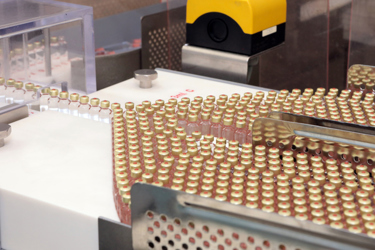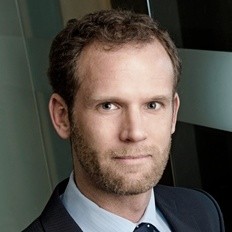Lineage Cell Therapeutics Manufactures Internally – Should You?

By Louis Garguilo, Chief Editor, Outsourced Pharma

Lineage Cell Therapeutics (headquarters in Carlsbad, California first caught my attention at the tail end of 2021 when, along with “subsidiary” Cell Cure Neurosciences Ltd (located in Israel), it announced a collaboration and license agreement with Roche and Genentech for the development/commercialization of a cell therapy for ocular disorders.
The deal included $50 million upfront, and Lineage is eligible to receive up to $620 million in additional development, approval, and sales milestone payments, as well as “tiered double-digit royalties.”
Cell Cure is Lineage’s cGMP in-house cell-manufacturing facility that has established a unique cell-therapy technology (the Lineage Platform) with an “infinitely reproducible” and adaptable cell line.
Lineage and Cell Cure guide differentiation and create IP by directing undifferentiated pluripotent stem cells (PSCs) to become specialized cell types with potential applications in transplant medicine. The company is pioneering “a new branch of medicine based on transplanting specific cell types into patients with serious medical conditions,” and has developed “off-the-shelf” (allogeneic) cell therapies.
Today, when we hear so much related to manufacturing capability and capacity challenges for cell-therapy companies, Lineage is an example of an emerging developer with in-house manufacturing as one of its strongest assets.
Of interest, then, is that relationship between Lineage and Cell Cure, and how it came about.
Is this another example of a therapy developer with “platform technology” ostensibly pursuing its own pipeline, but also looking to offer services as a contract manufacturer?
I asked Lineage CEO Brian Culley. Below he elucidates on that specifically, and provides his insights into the evolving cell-therapy milieu.
Not A CDMO

“It’s not a contract facility,” Culley says emphatically of Cell Cure.
Then with a smile: “Sometimes you do wonder about that as a course, right? We hear a lot about the dearth of cell-production capabilities.”
What he goes on to say, unintended but nonetheless eloquently, sums up the business challenge facing CDMOs serving cell-therapy customers (slightly edited).
“It’s difficult for a developer to also use its facility as a CDMO. The manufacturing process is so challenging that it’s hard to price it as a service. It's difficult to really understand how to extract fair value.
“You don’t get great economics from process optimization. If you're doing something with a high probability of success, you can kind of price it. But if you might fail six or seven times before you get it right, it's hard to price the cost and value of iteration, I think both for the CDMO and the customer. I've shied away from a traditional contract model because of that, and because I think the margins are too low.”
Cell-therapy developers working with your CDMOs please take note. You certainly have valid reasons for the times you question pricing and other aspects of a contract with an external partner. No pun intended, it is not an exact science. It is a tough business operating as a contract cell-therapy development and manufacturing organization, and pricing services.
Collaborators Are Better
So we’ve established Cell Cure is not Lineage’s CDMO. Organizationally, it’s a “subsidiary.”
Historically, the technology Lineage is focused on was birthed in Israel and first demonstrated at Cell Cure, which at the time was an independent company. In part two of our discussion, we will detail that history and the interesting purchase/integration of Cell Cure and the technology into Lineage.
Here let’s turn to how, on the other hand, Lineage does in fact work with external partners, or collaborators, as Culley never fails to call them.
“So instead of ‘customers’ like a CDMO would have, we have elected to work with others at select times in more of a collaboration,” he says. The first public acknowledgement of that being the deal with Genentech mentioned above.
Unlike the difficulty of working as a Biotech-CDMO, Culley says, “I want to have better upside in the economics of different assets being developed and commercialized.”
Because of the early success of his company’s development platform – based on that enhanced PSC technology that came with the purchase of Cell Cure (again, we will get to that), currently Lineage will not be able to develop all of its assets.
“We don't have sufficient capital to do that at this point,” Culley explains. “So collaborating in a way that reflects we bring tremendous knowhow and value to others allows us bigger participation in the upside of successful development, more than with the conventional economics associated with contract work.”
Collaborations are structured around Lineage’s intellectual property. Consider that Genentech deal, he says. “They are paying substantially for all of the developmental costs. That's a good situation for us – and also for them, of course.”
Culley is working on other alliances to enable more programs to move forward, and mentions Cancer Research UK, a large charity, and Immunomic Therapeutics, a private development organization.
“We've got discussions ongoing with other companies, including some you may have heard of, where we would collaborate on programs with the right economics,” he says.
Which rolls his thoughts back to CDMOs and their challenges:
“Production is so critical and difficult,” Culley iterates. “It would not be a great business decision for us to get paid –via a flat rate of some kind – by ‘customers.’ The value we bring is much higher, and it should be reflected adequately in success metrics and royalties in the event of success.”
But let’s consider that sentiment for a moment.
Is this really so different than what CDMOs and sponsors have been talking about for some years? That is, more enlightened relationships where both sides bring technology and knowhow to a partnership enabled by more creative contracting terms for sharing costs and profits?
Culley’s thoughts – and business model – for cell-therapy manufacturing is in many ways directional to where the outsourcing industry is in fact trying to end up.
